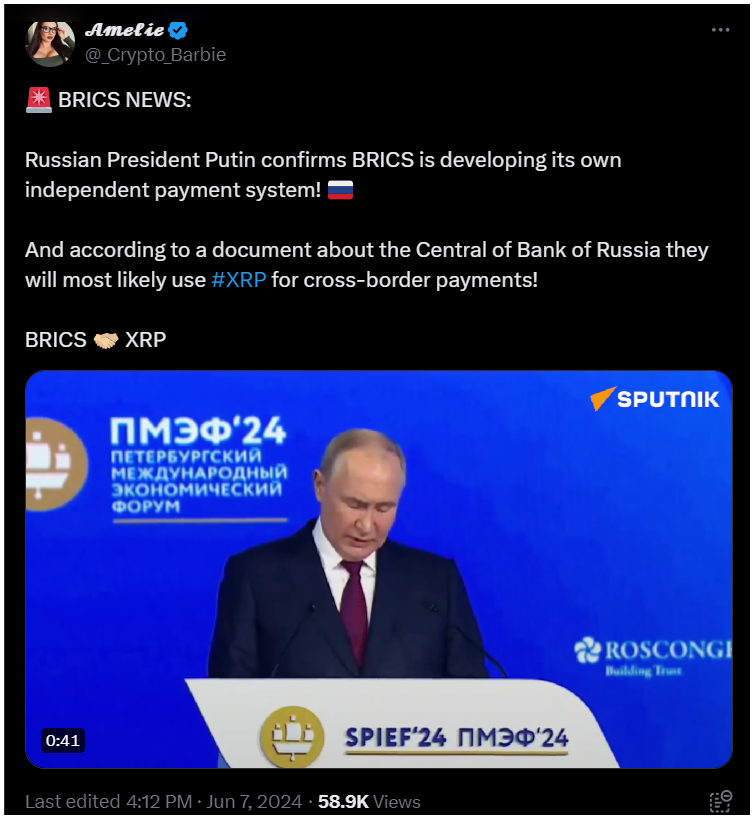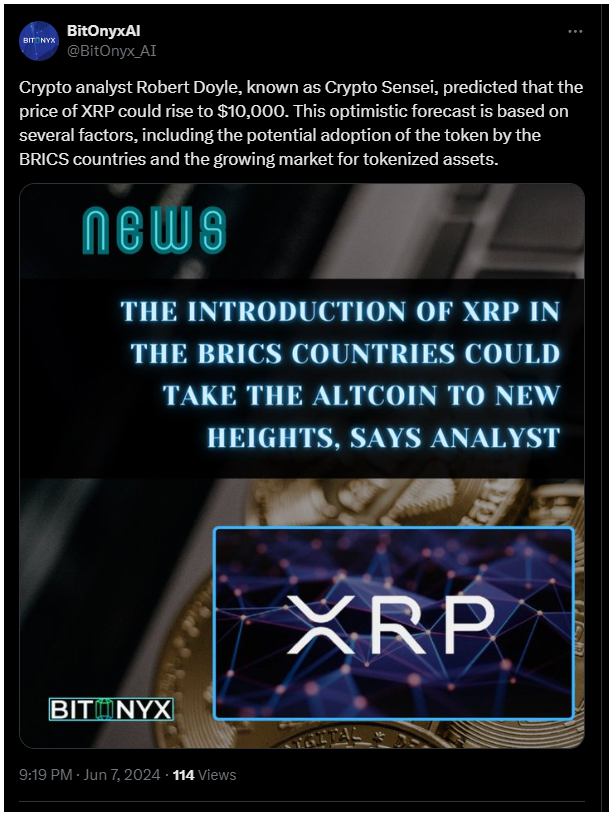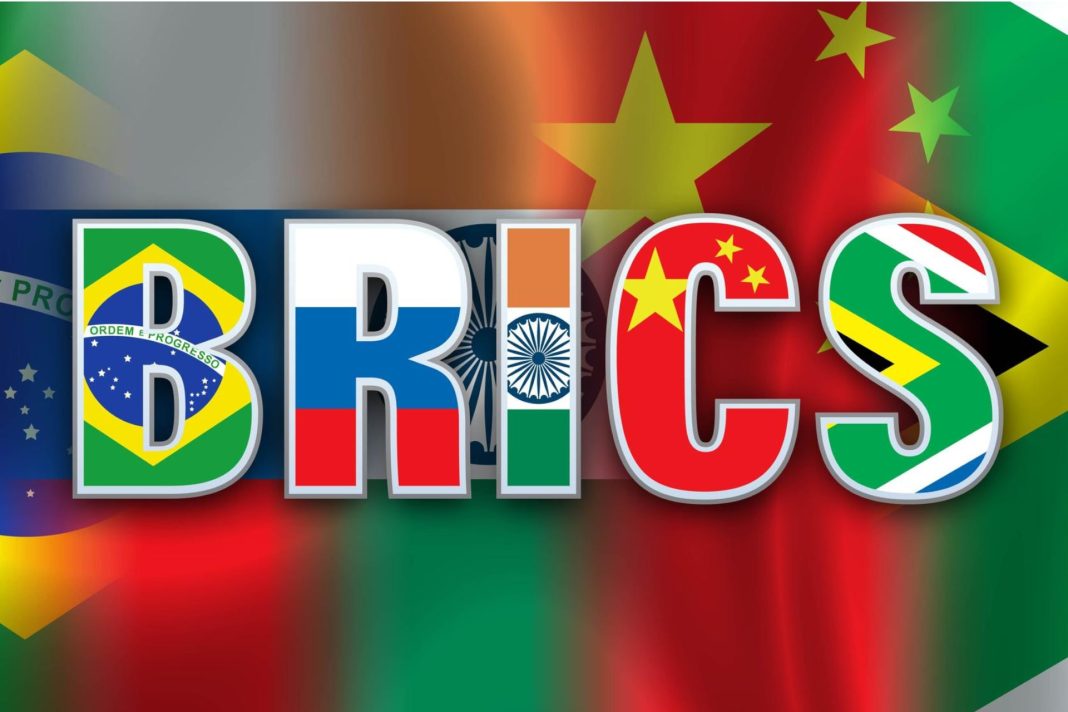Russian President Vladimir Putin has announced that the BRICS group is working on an independent payment system to reduce dependence on existing, USD-dominated financial systems.
A document from the Russian Central Bank suggests that XRP, associated with Ripple, might be used for cross-border transactions.
New members, new money
Putin highlighted the BRICS nations’ objective of establishing a payment system free from political interference and external control.

The group is set to expand in 2024 with the inclusion of Saudi Arabia, Iran, the UAE, Egypt, and Ethiopia, and as analysts highlight the numbers, with these additions, the BRICS’ combined global GDP is projected to increase to 36%.
Putin also expressed the group’s openness to accepting new members from various regions around the world.
A research paper indicates that the BRICS might use XRP for facilitating cross-border payments, because the XRP’s speed and low transaction fees make it an appealing option for the new BRICS payment system.
Many XRP fan thinks if implemented, this could lead to a big increase in XRP adoption and enhance its market price.
This consideration aligns with the Bank of Russia’s interest in the Ripple payment system for similar purposes.
Adoption on the horizon
Cryptonairz CEO Robert Doyle, also known as Crypto Sensei, predicts that XRP’s price could see a substantial rise if adopted by the BRICS nations for cross-border payments, and he speculates that XRP could reach $10,000 if the group successfully implements this plan.

Analysts believe that using XRP instead of the dollar could offer huge benefits to the BRICS countries, potentially reducing the currency volatility challenges faced by developing nations within the group.
USD issued by Federal Reserve, XRP issued by another company
While XRP is praised for its speed and low costs, it faces criticism for being centralized and permissioned, and some experts argue that it can be politically influenced through its issuer, Ripple.
Bitcoin proponents have previously argued that if the BRICS nations genuinely want to reduce their economic dependence on the USD, Bitcoin could be the only truly independent monetary asset suitable for this goal, as no single member state can exert uneven influence over it.
Have you read it yet? Deutsche Bank and Bitpanda partnership for crypto payments
Disclosure:This article does not contain investment advice or recommendations. Every investment and trading move involves risk, and readers should conduct their own research when making a decision.
Kriptoworld.com accepts no liability for any errors in the articles or for any financial loss resulting from incorrect information.


